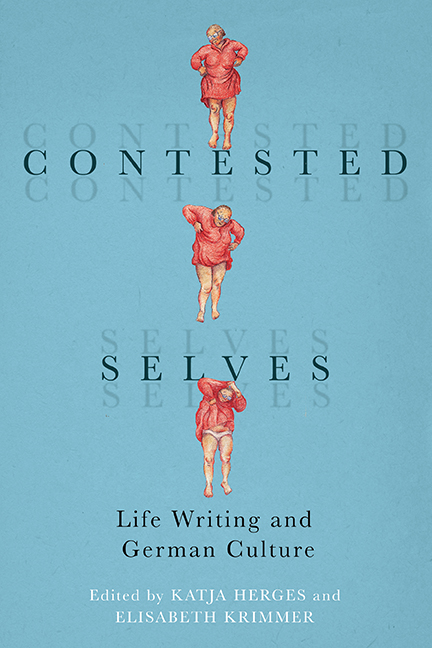Book contents
- Frontmatter
- Contents
- Acknowledgments
- Introduction
- Part I Women’s Life Writing, Female Subjectivity and Agency
- Part II Modern Life Writing and Aesthetics
- Part III Trauma and Vergangenheitsbewältigung
- Part IV Transnational and Transgenerational Life Writing in Contemporary Germany
- Bibliography
- Notes on the Contributors
- Index
11 - Shapeshifters: Metamorphosing Transgenerational Trauma through Comics
Published online by Cambridge University Press: 26 May 2022
- Frontmatter
- Contents
- Acknowledgments
- Introduction
- Part I Women’s Life Writing, Female Subjectivity and Agency
- Part II Modern Life Writing and Aesthetics
- Part III Trauma and Vergangenheitsbewältigung
- Part IV Transnational and Transgenerational Life Writing in Contemporary Germany
- Bibliography
- Notes on the Contributors
- Index
Summary
STARTING IN THE early 2000s, graphic narratives have become an increasingly visible and vibrant presence in the context of women's life writing. Autobiographical graphic narratives, or, to employ Gillian Whitlock's term, autographics, offer unique ways of mapping the self and its location in the world. In this essay I will reveal how three creators—Miriam Katin, Lynda Barry, and I—use the hybrid form of autographics to visualize our identities in terms of our relationships with geography, (family) history, and matter (including the more-than-human world of critters like bugs and snails). How does the exploration of those relationships, through drawing and writing, offer possibilities of metamorphosis to us as creators of comics and perhaps also to readers? As an artist-writer who writes and draws comics and simultaneously writes about comics, I am still in a somewhat unorthodox (though not at all unique) position. I am both subject and object of my analysis, a hybrid position that gifts me with extra possibilities for creative perception but also for critical blind spots. In this essay I am documenting my current graphic narrative, “The Queen of Snails,” while I am still developing it, knowing that my work and my viewpoint will change.
I choose to look at the works of Miriam Katin and Lynda Barry because they are contemporaries who have paved the way for my generation of women cartoonists focused on autographics. Katin, Barry, and I all have mothers who experienced violent displacement during World War II, though our respective mothers saw this conflict from vastly different vantage points; and Katin, unlike Barry and me, also endured the war herself as a very young child. Katin and her mother fled the Nazi invasion of Budapest; Barry's mother survived the Japanese invasion of the Philippines; and my own mother and her family fled Silesia, Germany, from the encroaching Russian army. Our intensive engagements with diverse familial experiences expose the transnational and transgenerational nature of war and its aftermath. By examining these three artists’ graphic narratives, I reveal that identity is never fixed but ever fluid—subject to political, cultural, and material processes beyond individual control.
- Type
- Chapter
- Information
- Contested SelvesLife Writing and German Culture, pp. 229 - 247Publisher: Boydell & BrewerPrint publication year: 2021



